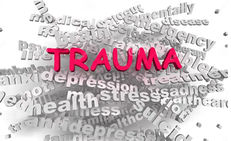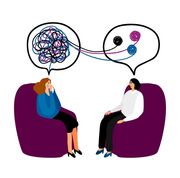Trauma, whether stemming from a major life event or a series of distressing experiences, can leave lasting effects on an individual's mental, emotional, and physical well-being. The journey to heal from trauma is undoubtedly challenging, but it is possible to regain control over your life and find renewed strength and resilience.
Traumatic events can range from natural disasters and accidents to abusive relationships or experiences of violence. The consequences of trauma may manifest in various ways, including flashbacks, nightmares, anxiety, depression, and difficulty forming healthy relationships.
Recognizing the Need for Healing:
Acknowledging the need for healing from trauma is the first crucial step towards reclaiming your life. Ignoring or suppressing the impact of trauma can lead to further distress and hinder your ability to move forward. It is vital to understand that healing is not about erasing the memory but rather learning to navigate life despite its presence.
Strategies for Healing:
1. Seek Professional Support: Trauma therapy, such as Cognitive Behavioral Therapy (CBT) or Eye Movement Desensitization and Reprocessing (EMDR), can provide a safe space for you to address your trauma, process your emotions, and develop healthy coping mechanisms.
2. Practice Self-Care: Prioritize self-care activities that nurture your mind, body, and spirit. Engaging in activities such as exercise, meditation, journaling, or spending time in nature can help reduce anxiety, promote relaxation, and increase self-awareness.
3. Build a Supportive Network: Surround yourself with understanding and empathetic individuals who can provide a safe and non-judgmental space for you to share your experiences. Participating in support groups or seeking out trusted friends and family members can foster a sense of belonging and alleviate feelings of isolation.
4. Embrace Mindfulness: Incorporate mindfulness techniques into your daily routine. Mindfulness involves being fully present in the moment, observing your thoughts and feelings without judgment. By practicing mindfulness, you can develop a greater awareness of your triggers and gradually regain control over your emotional responses.
5. Explore Healing Modalities: Alternative approaches such as art therapy, yoga, or expressive writing can also be beneficial in the healing process. These methods provide creative outlets for self-expression, allowing you to explore and release pent-up emotions in a safe and constructive manner.
The Importance of Seeking Professional Guidance:
While self-help strategies can contribute to healing, it is important to recognize that trauma recovery is a complex and delicate process. Seeking professional guidance from trained therapists or counselors can provide invaluable support and guidance tailored to your specific needs. Professionals can help you navigate and process traumatic memories, address any underlying mental health concerns, and teach you effective coping mechanisms to manage triggers and promote overall well-being.
Healing from trauma is a deeply personal journey that requires patience, self-compassion, and perseverance. By actively engaging in strategies such as seeking professional support, practicing self-care, building a supportive network, embracing mindfulness, and exploring alternative healing modalities, you can gradually regain control over your life and rediscover your strength and resilience. Remember, healing takes time, and it is essential to be kind and patient with yourself as you navigate the path towards recovery.
Therapy bookings: [email protected]
Website: www.unanapsychologist.com
Traumatic events can range from natural disasters and accidents to abusive relationships or experiences of violence. The consequences of trauma may manifest in various ways, including flashbacks, nightmares, anxiety, depression, and difficulty forming healthy relationships.
Recognizing the Need for Healing:
Acknowledging the need for healing from trauma is the first crucial step towards reclaiming your life. Ignoring or suppressing the impact of trauma can lead to further distress and hinder your ability to move forward. It is vital to understand that healing is not about erasing the memory but rather learning to navigate life despite its presence.
Strategies for Healing:
1. Seek Professional Support: Trauma therapy, such as Cognitive Behavioral Therapy (CBT) or Eye Movement Desensitization and Reprocessing (EMDR), can provide a safe space for you to address your trauma, process your emotions, and develop healthy coping mechanisms.
2. Practice Self-Care: Prioritize self-care activities that nurture your mind, body, and spirit. Engaging in activities such as exercise, meditation, journaling, or spending time in nature can help reduce anxiety, promote relaxation, and increase self-awareness.
3. Build a Supportive Network: Surround yourself with understanding and empathetic individuals who can provide a safe and non-judgmental space for you to share your experiences. Participating in support groups or seeking out trusted friends and family members can foster a sense of belonging and alleviate feelings of isolation.
4. Embrace Mindfulness: Incorporate mindfulness techniques into your daily routine. Mindfulness involves being fully present in the moment, observing your thoughts and feelings without judgment. By practicing mindfulness, you can develop a greater awareness of your triggers and gradually regain control over your emotional responses.
5. Explore Healing Modalities: Alternative approaches such as art therapy, yoga, or expressive writing can also be beneficial in the healing process. These methods provide creative outlets for self-expression, allowing you to explore and release pent-up emotions in a safe and constructive manner.
The Importance of Seeking Professional Guidance:
While self-help strategies can contribute to healing, it is important to recognize that trauma recovery is a complex and delicate process. Seeking professional guidance from trained therapists or counselors can provide invaluable support and guidance tailored to your specific needs. Professionals can help you navigate and process traumatic memories, address any underlying mental health concerns, and teach you effective coping mechanisms to manage triggers and promote overall well-being.
Healing from trauma is a deeply personal journey that requires patience, self-compassion, and perseverance. By actively engaging in strategies such as seeking professional support, practicing self-care, building a supportive network, embracing mindfulness, and exploring alternative healing modalities, you can gradually regain control over your life and rediscover your strength and resilience. Remember, healing takes time, and it is essential to be kind and patient with yourself as you navigate the path towards recovery.
Therapy bookings: [email protected]
Website: www.unanapsychologist.com











 RSS Feed
RSS Feed